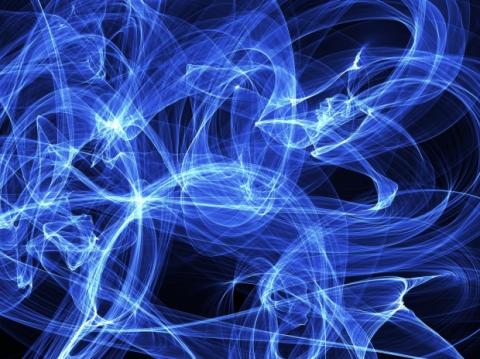Venkatasubramanian G, Jayakumar PN, Nagendra HR, Nagaraja D, Deeptha R, Gangadhar BN. Studio dei fenomeni paranormali: imaging cerebrale funzionale della telepatia. Int J Yoga. Luglio 2008; 1 (2): 66-71. doi: 10.4103 / 0973-6131.43543.
Riassunto.
SCOPO.
"Telepatia" è definita come "la comunicazione di impressioni di qualsiasi tipo da una mente all'altra, indipendentemente dai canali di senso riconosciuti". Le meta-analisi degli studi "ganzfield" e gli studi "risutati-indovinando-la-carta" forniscono prove convincenti dell'esistenza di fenomeni telepatici. Lo scopo di questo studio è di delucidare le basi neurali della telepatia esaminando un individuo con questa abilità speciale.
MATERIALI E METODI.
Usando la risonanza magnetica funzionale, abbiamo esaminato un famoso "mentalista" mentre eseguiva un'attività telepatica in uno scanner da 1,5 T. Un soggetto di controllo abbinato senza questa abilità speciale è stato esaminato anche in condizioni simili.
RISULTATI.
Il mentalista ha dimostrato l'attivazione significativa del giro paraippocampale destro dopo il successo delle prestazioni di un compito telepatico. Il soggetto di confronto, che non ha mostrato alcuna abilità telepatica, ha dimostrato un'attivazione significativa del giro frontale inferiore sinistro.
CONCLUSIONI.
I risultati di questo studio suggeriscono una base limbica per la telepatia e garantiscono ulteriori ricerche sistematiche.
---
Venkatasubramanian G, Jayakumar PN, Nagendra HR, Nagaraja D, Deeptha R, Gangadhar BN. Investigating paranormal phenomena: Functional brain imaging of telepathy. Int J Yoga. 2008 Jul;1(2):66-71. doi: 10.4103/0973-6131.43543.
Abstract
AIM:
"Telepathy" is defined as "the communication of impressions of any kind from one mind to another, independently of the recognized channels of sense". Meta-analyses of "ganzfield" studies as well as "card-guessing task" studies provide compelling evidence for the existence of telepathic phenomena. The aim of this study was to elucidate the neural basis of telepathy by examining an individual with this special ability.
MATERIALS AND METHODS:
Using functional MRI, we examined a famous "mentalist" while he was performing a telepathic task in a 1.5 T scanner. A matched control subject without this special ability was also examined under similar conditions.
RESULTS:
The mentalist demonstrated significant activation of the right parahippocampal gyrus after successful performance of a telepathic task. The comparison subject, who did not show any telepathic ability, demonstrated significant activation of the left inferior frontal gyrus.
CONCLUSIONS:
The findings of this study are suggestive of a limbic basis for telepathy and warrant further systematic research.

